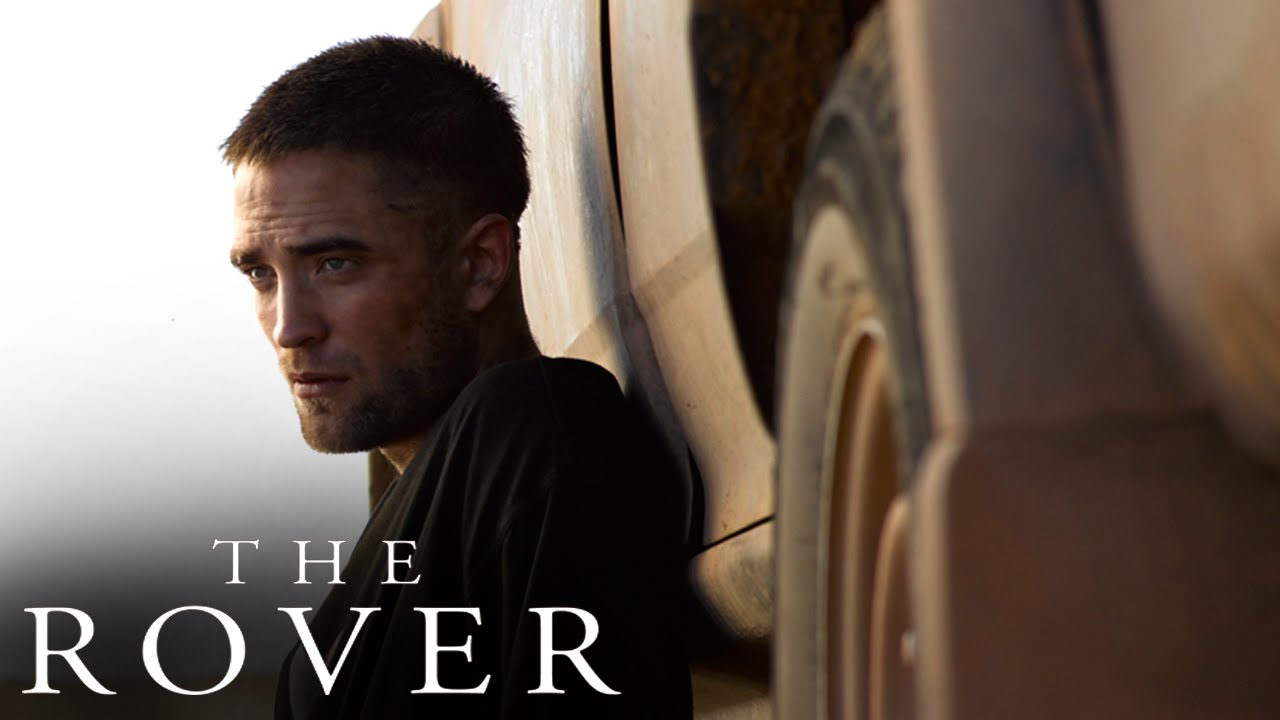
The Rover is a gripping and intense film that has captivated audiences worldwide. Directed by David Michôd, this neo-western dystopian thriller takes place in a post-apocalyptic Australia, where society has collapsed and lawlessness reigns. Released in 2014, The Rover stars talented actors such as Guy Pearce and Robert Pattinson, who deliver outstanding performances that leave a lasting impression on viewers.
In this article, we will delve into the world of The Rover and uncover 45 fascinating facts about this thought-provoking movie. From behind-the-scenes insights to intriguing trivia, we will explore the making of The Rover and shed light on the various aspects that make this film truly special.
So grab your popcorn and get ready to embark on a thrilling journey as we uncover the secrets and surprises hidden within The Rover!
Key Takeaways:
- The Rover” is a 2014 post-apocalyptic film set in the Australian Outback, exploring themes of survival, desperation, and the dark side of humanity.
- The movie features Robert Pattinson and Guy Pearce, with a haunting musical score and a minimalist storytelling approach, making it a visually striking and thought-provoking experience.
The Rover was released in 2014.
The movie, directed by David Michôd, premiered at the Cannes Film Festival in May 2014.
The Rover is set in a post-apocalyptic world.
The film takes place in the Australian Outback, where society has collapsed due to an economic crisis.
Robert Pattinson and Guy Pearce star in The Rover.
Pattinson plays Rey, a young man left behind by his brother, while Pearce portrays Eric, a hardened loner seeking revenge.
The Rover explores themes of survival and desperation.
The film delves into the human psyche under extreme circumstances, highlighting the lengths people will go to in order to survive.
The Rover was partly inspired by the Australian landscape.
Director David Michôd wanted to capture the raw and unforgiving nature of the Outback, which adds to the gritty atmosphere of the film.
The Rover’s screenplay was written by David Michôd.
Michôd drew inspiration from a short story he had written many years prior, which he later developed into a full-length script.
The movie was filmed on location in South Australia.
The rugged landscapes of the Flinders Ranges and Marree provided the perfect backdrop for the post-apocalyptic setting.
The Rover has a minimalist approach to storytelling.
The film relies on visual storytelling and sparse dialogue, leaving much to the interpretation of the audience.
The Rover features a haunting musical score.
The atmospheric soundtrack composed by Antony Partos enhances the tension and emotional impact of the film.
The Rover received critical acclaim for its performances.
Robert Pattinson’s portrayal of Rey garnered particular praise, showcasing his versatility as an actor.
The Rover explores the dark side of humanity.
The film examines the moral ambiguity of its characters and the choices they make in a lawless world.
The Rover is a slow-burn thriller.
The deliberate pacing and intense atmosphere build tension throughout the film, culminating in a gripping climax.
The movie’s runtime is approximately 103 minutes.
The concise runtime contributes to the film’s tight storytelling and keeps the audience engaged from start to finish.
The Rover has a gritty and realistic visual style.
The cinematography by Natasha Braier captures the harshness of the Outback and adds to the film’s authenticity.
The Rover explores the nature of power.
The film delves into the dynamics of power and control, as characters navigate a world with few rules or consequences.
The Rover received multiple nominations and awards.
The film was recognized for its direction, writing, performances, and cinematography at various award ceremonies.
The Rover is a character-driven story.
The focus is on the journey and transformation of the main characters, rather than relying solely on plot twists or action sequences.
The Rover’s production budget was around $12 million.
The film was made on a relatively modest budget, allowing the filmmakers to maintain creative control over the project.
The Rover explores themes of isolation and loneliness.
The characters in the film are often isolated, both physically and emotionally, highlighting the desperation of their circumstances.
The Rover’s narrative is driven by personal motives.
Eric’s relentless pursuit of his stolen car becomes a metaphor for his need to reclaim a sense of control and purpose in his life.
The film showcases the resilience of its characters.
Despite facing unimaginable hardships, the characters in The Rover demonstrate an unyielding will to survive.
The Rover premiered in the Midnight Screenings section at Cannes.
The film’s gritty and intense atmosphere made it a perfect fit for the late-night screening slot.
The Rover received mixed reviews from audiences.
While some praised its unique take on the post-apocalyptic genre, others found it to be too bleak or slow-paced.
The Rover explores the price of humanity in a lawless world.
The film raises questions about the value of compassion and morality when survival is at stake.
The Rover’s screenplay went through several revisions.
Writer-director David Michôd spent years refining the script to ensure every scene served a purpose in driving the story forward.
The movie’s official tagline is “Fear the man with nothing left to lose.”
This tagline reflects the desperation and determination of the film’s main characters.
The Rover is an independent production.
The film was financed by various production companies, allowing for creative freedom outside the constraints of a major studio.
The Rover explores themes of guilt and redemption.
Eric’s quest for revenge becomes a journey towards inner redemption and a chance to confront his own demons.
The Rover’s editing was done by Peter Sciberras.
Sciberras’s editing choices contribute to the film’s deliberate pacing and overall sense of unease.
The Rover is a visually striking film.
The combination of atmospheric cinematography and desolate landscapes create a visually captivating experience.
The Rover’s characters are complex and morally ambiguous.
There are no clear-cut heroes or villains in the film, blurring the lines between good and evil.
The Rover explores the consequences of unchecked greed.
The film depicts a world where selfishness and the desire for power drive individuals to commit heinous acts.
The Rover’s production team faced challenges filming in remote locations.
Extreme weather conditions and limited access to resources added to the authenticity of the film, but posed logistical difficulties.
The Rover’s marketing campaign focused on the film’s intense and atmospheric tone.
Promotional materials highlighted the gripping performances and the unforgiving world depicted in the film.
The Rover’s story is driven by desperation.
Eric’s relentless pursuit of his stolen car becomes a symbol of his desperate need to regain control in a chaotic world.
The film’s score was nominated for several awards.
Antony Partos’s haunting and atmospheric music was widely recognized for its contribution to the film’s overall tone.
The Rover explores the blurred boundaries of morality.
As law and order break down, characters are forced to make difficult choices with no clear right or wrong answers.
The Rover received praise for its authentic depiction of a post-apocalyptic world.
The film’s production design and attention to detail created a fully realized and believable setting.
The Rover’s screenplay was influenced by classic Western films.
Director David Michôd drew inspiration from the themes and conflicts found in Westerns, translating them into a modern dystopian setting.
The Rover explores the nature of revenge.
Eric’s single-minded pursuit of his stolen car becomes an obsession, blurring the line between justice and vengeance.
The Rover challenges conventional ideas of masculinity.
The film presents a complex and layered portrayal of male characters, exploring vulnerability and emotional depth.
The Rover’s cinematography captures the isolation of its characters.
Wide shots of the vast, empty landscapes emphasize the loneliness and isolation experienced by the characters.
The Rover received a rating of 6.4/10 on IMDb.
The film has garnered a mixed reception from audiences, with some praising its unique approach, while others found it too bleak.
The Rover’s ending is open to interpretation.
The film concludes with a thought-provoking finale that leaves room for different interpretations and discussions among viewers.
The Rover stands as a powerful exploration of humanity’s darkest instincts.
Through its gritty storytelling and compelling performances, the movie forces audiences to confront the depths of human nature in extreme circumstances.
Conclusion
In conclusion, The Rover is a captivating and intense film that showcases the talents of the cast and the vision of the director. With its gritty post-apocalyptic setting and thought-provoking themes, it keeps viewers on the edge of their seats from start to finish. The performances by Guy Pearce and Robert Pattinson are truly outstanding and add depth to the characters they portray. The cinematography and editing choices further enhance the tense and raw atmosphere of the film. Overall, The Rover is a must-watch for fans of dystopian cinema and those looking for a unique and immersive cinematic experience.
FAQs
1. What is the plot of The Rover?
The Rover is set in a desolate future where society has collapsed, and follows a man named Eric as he embarks on a relentless pursuit to retrieve his stolen car, a task that takes him on a journey across a lawless Australian wasteland.
2. Who are the main actors in The Rover?
The film stars Guy Pearce as Eric, a determined loner seeking his stolen car, and Robert Pattinson as Rey, a naïve and vulnerable young man who becomes Eric’s reluctant ally.
3. What genre is The Rover?
The Rover can be classified as a dystopian crime thriller. It combines elements of post-apocalyptic storytelling with intense action and psychological tension.
4. Who directed The Rover?
The film was directed by David Michôd, known for his work on the critically acclaimed crime drama “Animal Kingdom.”
5. Is The Rover based on a book?
No, The Rover is an original screenplay written by David Michôd.
6. When was The Rover released?
The film was released in 2014 and received positive reviews from critics, praising its performances, atmosphere, and storytelling.
7. Is The Rover suitable for all audiences?
The Rover is rated R for strong violence, language, and some drug use. Viewer discretion is advised.
8. Can you watch The Rover online?
The availability of the film for online streaming may vary depending on your location and the platform you use. It is recommended to check popular streaming services or rental platforms for its availability.
Was this page helpful?
Our commitment to delivering trustworthy and engaging content is at the heart of what we do. Each fact on our site is contributed by real users like you, bringing a wealth of diverse insights and information. To ensure the highest standards of accuracy and reliability, our dedicated editors meticulously review each submission. This process guarantees that the facts we share are not only fascinating but also credible. Trust in our commitment to quality and authenticity as you explore and learn with us.


